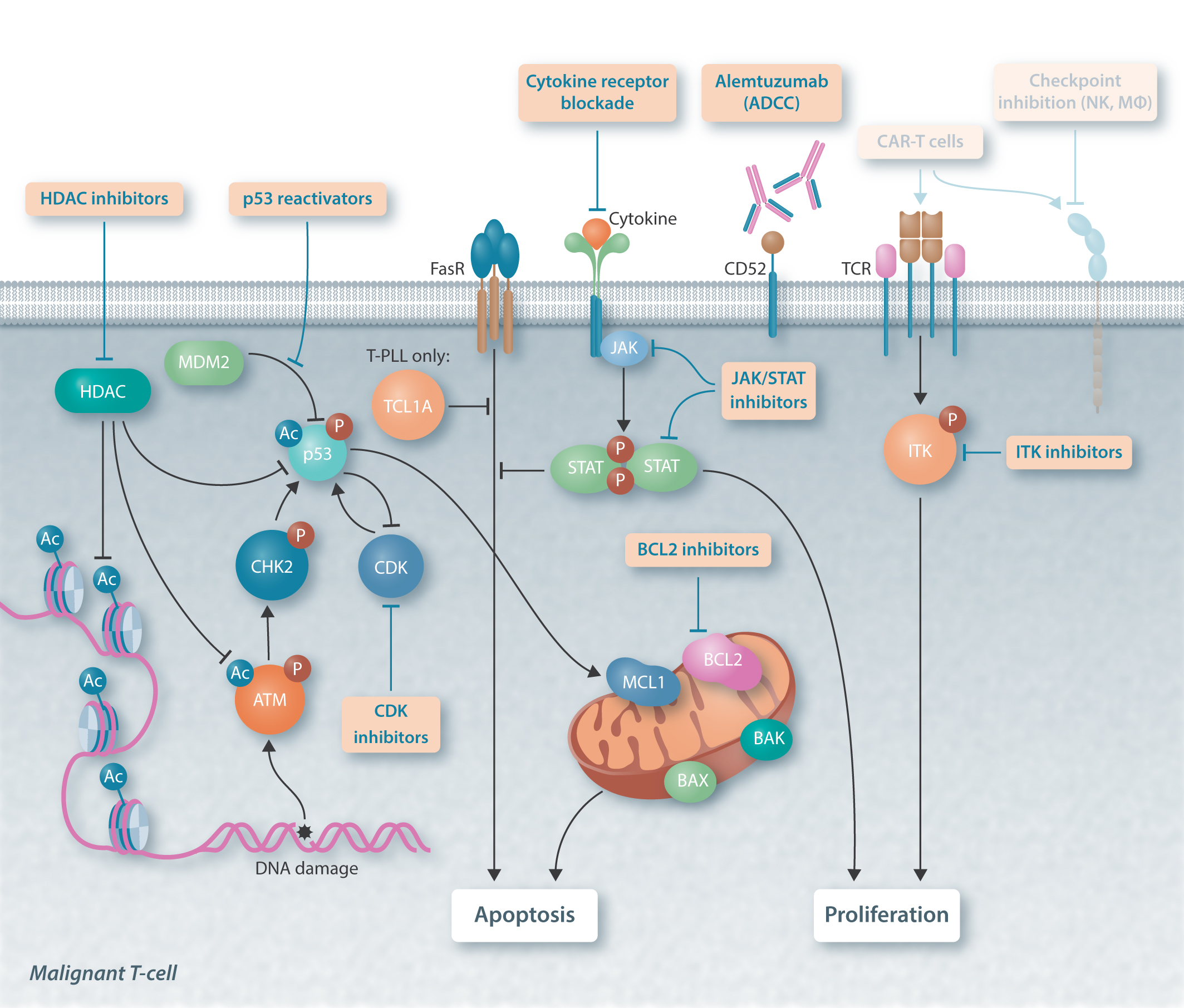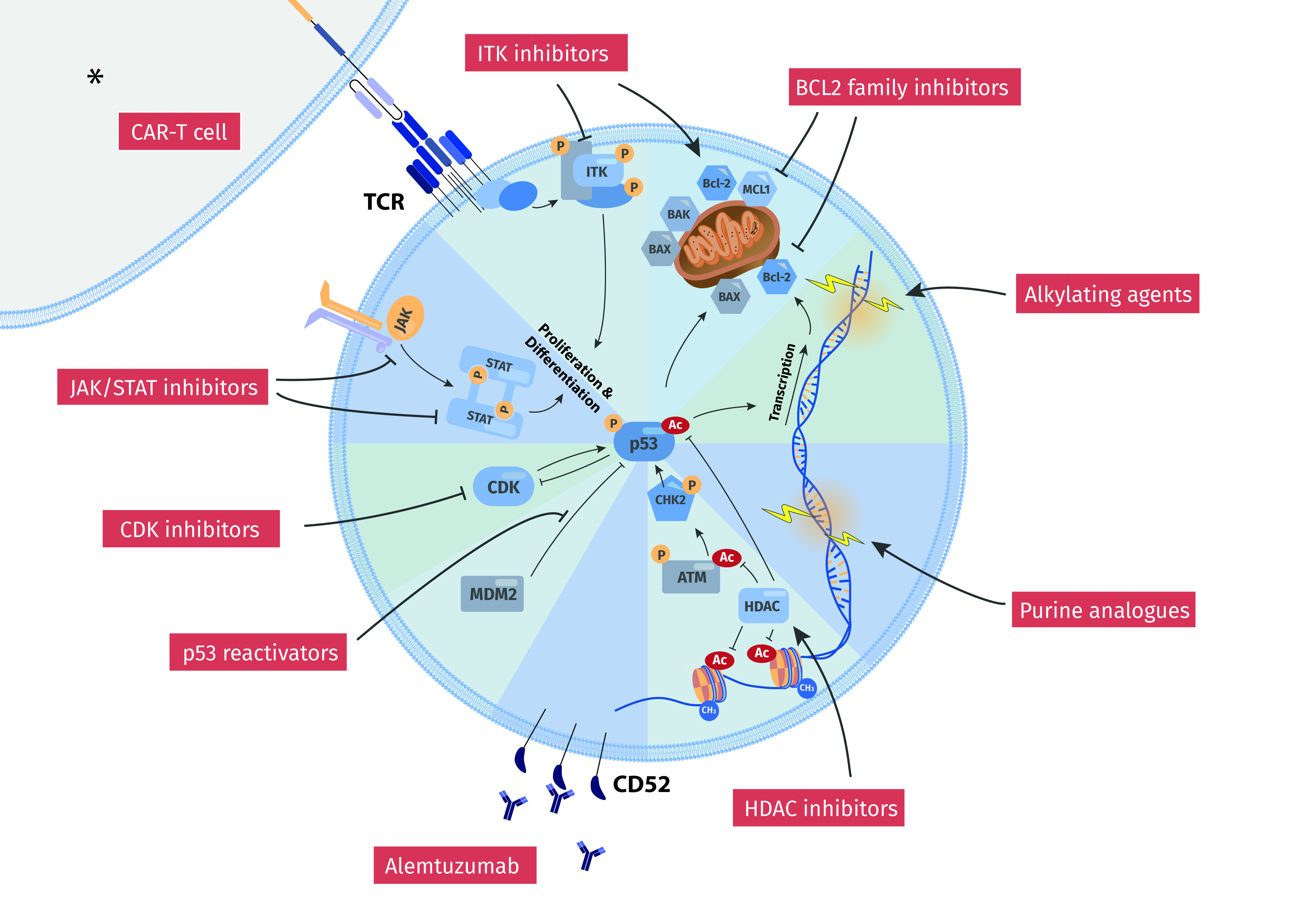CD44 regulates the apoptotic response and promotes disease development in chronic lymphocytic leukemia
Abstract:
The cell-surface glycoprotein CD44 is expressed in chronic lymphocytic leukemia (CLL), but its functional role in this disease is poorly characterized. We therefore investigated the contribution of CD44 to CLL in a murine disease model, the Eµ-TCL1 transgenic mouse, and in CLL patients. Surface CD44 increased during murine CLL development. CD44 expression in human CLL was induced by stimulation with interleukin 4/soluble CD40 ligand and by stroma cell contact. Engagement of CD44 by its natural ligands, hyaluronic acid or chondroitin sulfate, protected CLL cells from apoptosis, while anti-CD44 small interfering RNAs impaired tumor cell viability. Deletion of CD44 during TCL1-driven murine leukemogenesis reduced the tumor burden in peripheral blood and spleen and led to a prolonged overall survival. The leukemic cells from these CD44 knockout animals revealed lower levels of antiapoptotic MCL1, a higher propensity to apoptosis, and a diminished B-cell receptor kinase response. The inhibitory anti-CD44 antibodies IM7 and A3D8 impaired the viability of CLL cells in suspension cultures, in stroma contact models, and in vivo via MCL1 reduction and by effector caspase activation. Taken together, CD44 expression in CLL is mediated by the tumor microenvironment. As a coreceptor, CD44 promotes leukemogenesis by regulating stimuli of MCL1 expression. Moreover, CD44 can be addressed therapeutically in CLL by specific antibodies.













